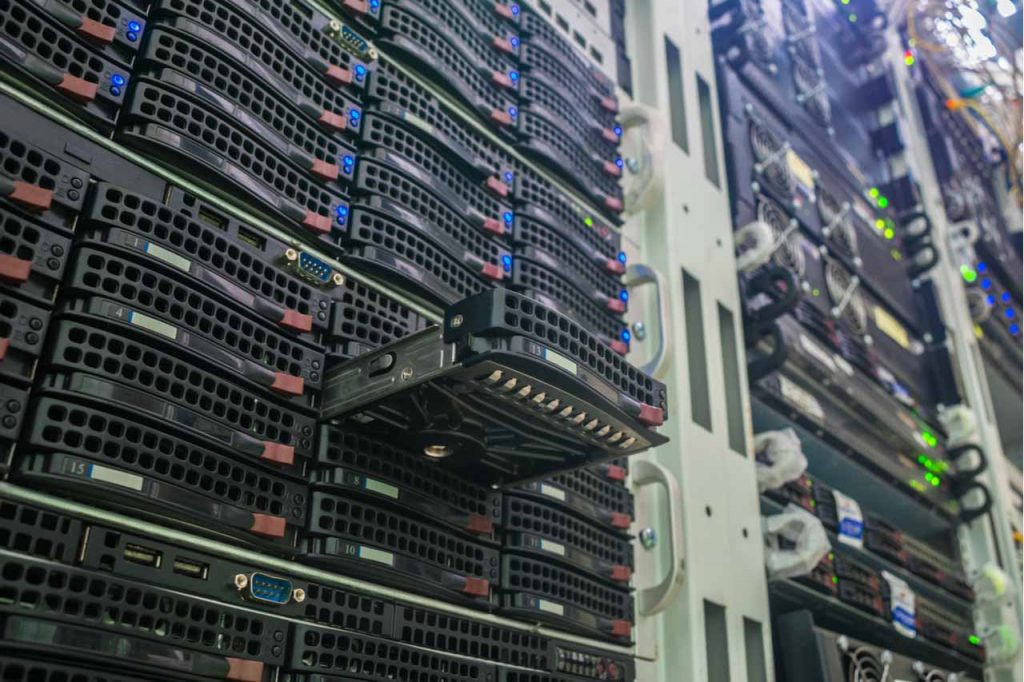
In 2023, of the more than 275,000 assets DMD Systems Recovery processed, slightly more than 100,000 were reused. | Maximumm/Shutterstock
Arizona-based ITAD company DMD Systems Recovery shared recycling and reuse data in its 2023 impact report, and updated its carbon-neutral goals.
The company noted in a press release that the report showed its “dedication to providing efficient, ethical and sustainable services.” It is the second time DMD has released an impact report.
CEO Aaron Zeper added that DMD’s “commitment to responsibility goes beyond words – it’s embedded in our actions.”
The company’s six core services are decommissioning, logistics, inventory, data destruction, value recovery and recycling. The report noted that it has 113 enterprise agreements, 209 transacting customers and 127 multi-year customers.
“Our total client quantity has decreased slightly over the past five years,” the report noted. “However, the number of assets we process and our client impact continues to grow dramatically. This is a function of finding the best-aligned companies who value our outcomes and more importantly, how we achieve these outcomes.”
DMD has local processing in 15 U.S. states and 14 countries, the report added, and is handling projects in 42 states and 21 countries. It has been serving more international clients over the past three years, roughly doubling the number of international downstream vendors it uses from the previous year and growing its global customer base from 15 in 2022 to 35 in 2023.
As far as assets, the report noted that in 2023, 9% of all wipeable assets were redeployed within the customer’s operations, a leap from years past. And while 2023 also saw a “degraded data center market” that led to more recycling than reuse of those assets, DMD said that has since stabilized, and reuse rates are expected to rebound.
In 2023, of the more than 275,000 assets processed, slightly more than 100,000 were reused. That’s a slight dip from last year, and a significant drop from 2021, when more than 150,000 assets were reused out of the roughly 200,000 DMD processed that year.
By weight, in 2023 DMD processed about 1,800 metric tons of electronics, and 1,135 metric tons of that total was repaired and reused.
“We are obsessed with ensuring an asset moves to its next best use,” the report noted. “One of the ways we measure this is the quantity and percentage of IT assets and items that are sold for reuse.”
While DMD originally pledged to become carbon neutral by the end of 2025, it changed that goal this year. The report noted the company has “serious concerns about the validity and accounting of carbon credits.”
Becoming carbon neutral would have involved “procuring carbon credits or investing in our own carbon reduction projects, as reducing carbon emissions in our leased facilities alone will not suffice for net zero,” the report said. But “based on completing this year’s Impact Report and learning more about the industry, we are removing this pledge and instead focusing on reducing our Scope 3 emissions.”
Scope 3 emissions are those that are outside an organization’s direct assets or operations, such as upstream or downstream emissions indirectly affected by the reporting organization.
“We are going to focus on emissions reduction and other ways that we can offset our energy usage through direct projects,” DMD stated. “We are moving our date to 2030 as we change our approach to a more tangible impact.”
The company is maintaining its zero-landfill policy, “ensuring electronics are never disposed of in landfills, regardless of local legalities.”
Overall, some of the company’s 2023 achievements were increasing its retail sales, which means more assets being reused, opening a second location and therefore reducing transport emissions, and increasing local processing partners, also reducing the environmental impact of logistics.
Looking to 2024, the company planned to increase its onsite data erasure capability to “further limit transport emissions,” as well as create a direct-to-consumer brand to improve reuse rates and to educate more companies about having a reuse-first standard.

